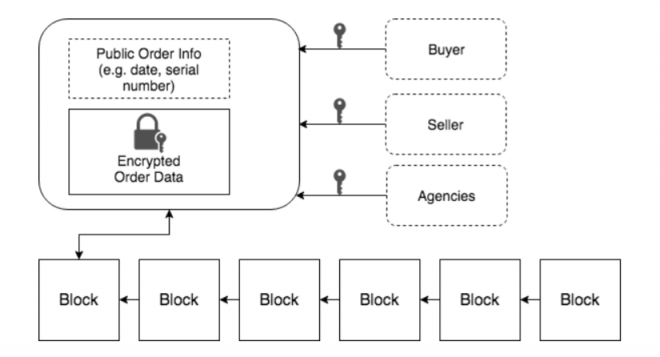We live in a world where more people own smartphones than toilets.
After this fact surfaced in 2010, a wave of effort was channeled to improve global sanitary conditions. However, the profound bit of information remains: billions of people have the internet in their pocket.
It tooks us eons to come up with the technology necessary to make global communication accessible to the average person. A major driving force behind this kind of technological advancement is commerce.
People buying and selling goods, services, and ideas allowed for the massive changes we see before us today. Advancement does not typically occur in linear fashion, and what leads to improvements in one scenario might also serve as a limitation later on.
Like Einstein reminded us, “We cannot solve our problems with the same thinking we used when we created them.”
Ecommerce has exploded into our lives and has spread across the globe, riding the coattails of internet and smartphone expansion. Buying and selling online was the next natural step for commerce, despite bringing its own set of problems for us to solve.
The Issues in Ecommerce Today
There are currently 3 major ecommerce companies profiting massively on the rise of technology. Amazon, eBay, and Alibaba dominate the global market, with very little competition outside of themselves.
We can see in the ecommerce industry what happens when you have a few giants monopolizing an industry. We could even take it back to a common criticism of capitalism, that the game is rigged to make the rich even richer at the expense of the poor masses.
Since the ecommerce industry relies on the internet, it’s easier to see this happening, and also, monopolies have an easier time carrying it out.
For example, you’ll see companies offering a service at a steep discount to encourage users to try it out. Once they realize how useful it actually is, or build a business around it, the trial period expires and prices increase. This is a common tactic, one that we’ve undoubtedly grown used to.
While companies can justify what they’re charging due to the real benefits of their products, it’s important to distinguish whether the services we’re paying for are worth the premium price, or if the price is inflated due to the relatively new possibilities the internet offers.
Trust Is Expensive
Two-day shipping is incredible. Still, there are some things you’d much rather buy from a physical store. Ecommerce companies have the outright challenge of building a trustworthy brand. Trust is an expensive thing to establish, costing both the buyer and seller time, effort, and money.
For an ecommerce business starting out, founders have the option to build a trustworthy website from scratch, or to sell on an established platform. This means most merchants will sell on Amazon, where trust is built into the system. Amazon is the middleman that sells trust to both parties, which puts them in a position of power over sellers in particular.
Broken Cost Model for Sellers
Since Amazon is between buyers and sellers, they’re in control of the entire sales process, including communication between both parties. In a 2015 article by The Guardian, it was reported that Amazon has lists of customer email addresses and browsing behaviors, and sellers must pay to access them.
Considering Amazon takes 15% – 25% of sales already, that information is hard to reach for most new sellers on the platform. To make matters worse, consider what Amazon does with their extensive customer lists.
When a product is identified as a “hot seller,” Amazon will release a similar product within months to undercut the original sellers. The information is not only withheld from sellers, it’s also used against them. It’s no wonder sellers are fed up with the platform.
No Data Integrity
While Amazon is compiling customer information from its users in order to undercut sellers on their own platform, one would also wonder where this information is coming from. As it stands today, ecommerce companies have unrestricted access to their customers’ shopping activity.
Aside from the risks customers are exposed to by having their personal data under centralized governance, they’re also giving away valuable information to a company whose system is charging them extra for their purchases—in order to maintain its monopoly.
Not to Slam Amazon…
I’ve got a Prime Membership myself! But centralization creates maligned incentives.
It’s all about the systems our industries are built on. Centralized commerce helped bring us to the amazing time in history we all have the privilege of witnessing. But like the founder of a company, sometimes the grip they have on their company—the same one that caused it to succeed—can become a stranglehold.
This stranglehold can create a bottleneck that stifles the evolution of their business. It’s only when the founder relaxes, starts outsourcing the decision-making and fulfillment process to trusted employees, that the business has the ability to scale further.
Seen from the macro, the release of the ecommerce bottleneck is being made possible with the decentralized ledger system, allowing all participants to relax and depend on the outsourcing of trust.
ApolloX Cuts Out the Middleman
Blockchain technology will do for ecommerce what it does for industries across the board: streamline the process with a trustless system. ApolloX is giving ecommerce a much needed backend adjustment.
Decentralized Trust
Instead of relying on an entire company to maintain trust between buyers and sellers, the execution and utilization of ApolloX protocols means trust will be provided by community consensus.
For example, if a buyer runs into problems with a fraudulent seller, they know their case will be reviewed by a group of their peers. Their centralized equivalent would profit from the success of the transaction, regardless of the damage done to the buyer.
Lower Prices
With the current ecommerce model, we pay up to 5 times the amount an item costs to manufacture for convenience. Every link in the supply chain is taking a profit. By implementing blockchain technology to the platform, we’re closer to conducting business peer-to-peer.
With the implementation of the ApolloX protocols comes a drastic reduction in listing costs. Where Amazon charges their sellers $20, ApolloX charges $1. Advertising costs could eventually be cut in half, along with shipping costs dropping by 20%.
The ApolloX team anticipates a reduction of 40% for consumers by eliminating middlemen with the blockchain.
Data Control
Inherent in blockchain technology is the ability to encrypt sensitive information and store it on an immutable ledger. If the information needs to be accessed, a user is able to do so with their private key.

ApolloX only allows buyers to access their browsing and purchasing activity. Buyers can even choose not to leave any activity history. By having access to this valuable information, users can voluntarily share their data with service providers on the network to earn rebates or personalized services.
This allows buyers to control the ads they have incentive to receive, while sellers lower customer acquisition barriers and costs by obtaining their customers’ shopping behaviors. The ApolloX protocol gives its users incentive to focus on improving their product or service instead of spending time and money competing with large corporations with unfair advantages.
Aligning Buyer, Seller, and Platform
Perhaps one of the most interesting elements of decentralized ecommerce is how it contrasts with the organizational structure of its centralized counterpart. Traditional ecommerce platforms clearly distinguish buyers and sellers, while simultaneously maximizing their own interests as a service provider company.
The incentives for users in a decentralized ecommerce platform are prioritized and intertwined with one another. Each individual’s interests are linked to the long-term success of the platform as a whole, whether they’re looking to obtain APXT tokens or increase the value of their tokens. Everyone is creating value for the community while seeking benefits for themselves.
The native APXT token has two purposes: it facilitates transactions and incentivizes contributions to the ecosystem. This intertwined incentive creates a self-governed system that echoes the original intent of blockchain technology.
Getting Involved
Building an ecommerce platform that combines the interests of all parties while outsourcing trust is revolutionary.
This systematic switch for the better is being ushered in by early adopters. By those who decide to build a company that benefits its users in the long-term, rather than merely capitalizing on the crypto hype to pad their wallets. It’s made reality by those who take a risk and use a brand new technology that isn’t part of the societal norm—yet.
For a deeper understanding of ApolloX, dive into the 5 protocols outlined in their whitepaper, and check out the team behind the project.
To stay in the ApolloX loop, check out their website, join their Telegram Group, and follow them on Medium.

